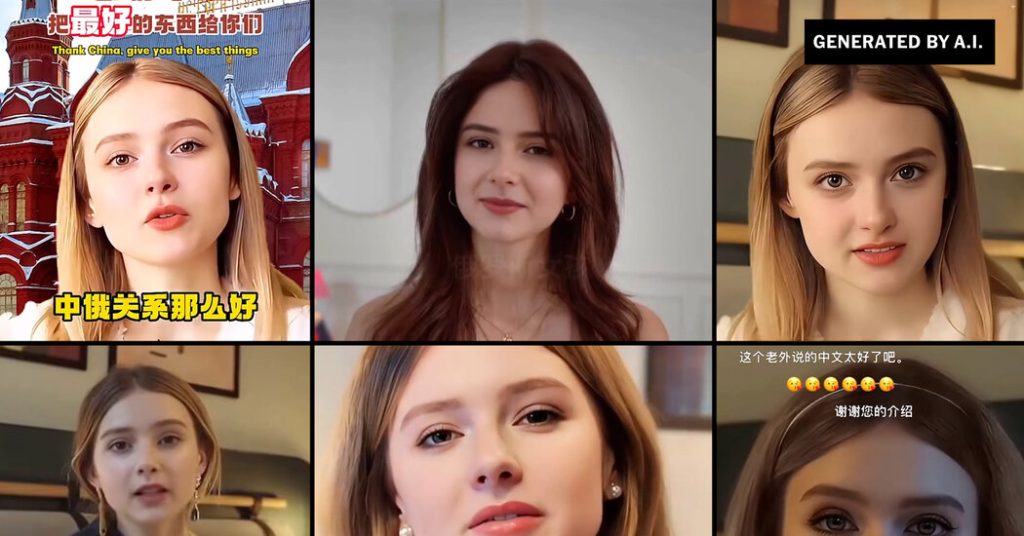In recent times, on Chinese social media platforms like Douyin and Xiaohongshu, there has been a rise in the popularity of A.I.-manipulated videos featuring young, purportedly Russian women. These videos are used to promote China-Russia ties, evoke patriotic emotions, or generate income. The videos often direct viewers to product links for commercial purposes, with a primary target audience being nationalistic Chinese men. The women featured in these videos praise Chinese men, plead for their rescue from poverty, and express admiration for Chinese culture and language.
The videos use various tactics, including lip-syncing techniques and artificial intelligence, to create a sense of authenticity. Prominent figures like Olga Loiek and Shadé Zahrai have had their video clips modified to fit the narrative of the fake personas portrayed in the A.I.-enhanced content. The videos aim to tap into the deepening relations between Russia and China and evoke a sense of national pride among Chinese viewers. The use of foreign faces, especially young white women, plays into nationalist sentiments and fosters a sense of masculinity and pride among the audience.
Despite the efforts to create realistic videos, some of the A.I.-generated content appears unconvincing, while others are highly sophisticated and difficult to distinguish from real footage. The creators behind these deepfake videos often have commercial interests, targeting the growing trend of livestream shopping and short video marketing in China. As A.I. technology becomes more accessible, the use of artificially generated videos for sales purposes is expected to increase.
The rise of deepfake videos raises concerns about misinformation and unauthorized use of individuals’ likenesses on social media platforms. Foreign influencers like Olga Loiek have reported instances of their images being co-opted for fake personas on Chinese social media, leading to concerns about privacy and copyright issues. Social media platforms have started cracking down on A.I.-generated content, but enforcement of regulations remains a challenge, especially in closed internet environments like China.
While the current focus may be on Russia-China relations, the use of A.I. technology to create customized content for specific audiences is likely to continue and expand to other trending topics. The manipulation of videos to attract attention and generate income is a growing issue that raises questions about the ethics and regulations surrounding deepfake technology. As the technology advances, there is a need for greater awareness and measures to address the misuse of A.I. in creating misleading or harmful content on social media platforms.








